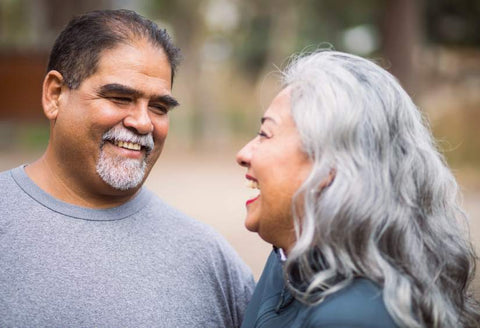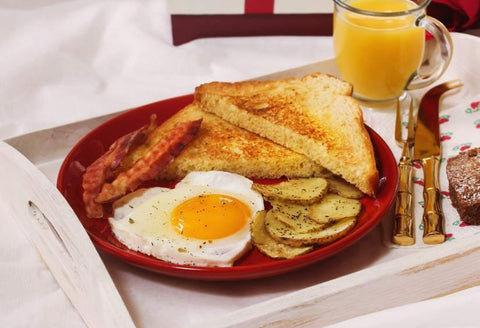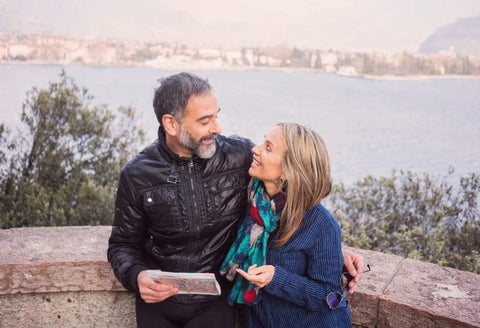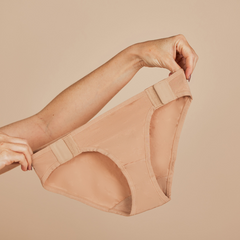Chronic illness can have an impact on intimate relationships, but many couples are able to navigate the challenges that chronic illness poses.
Many people with chronic illness have the desire to date, partner, marry, and nurture their current relationship. Additionally, partners to people with chronic illness are able to flourish and enjoy their relationship regardless of the limitations or medical needs they accommodate.
Below are some suggestions and options for couples who are navigating chronic illness:
Energy Level

Chronic illness can cause energy levels to wax and wean which can put a strain on how much energy you might have for partnered activities among your other competing priorities.
Consider intentionally planning and scheduling for time together and then preparing for that time together by implementing energy conservation. Consider what time of day or week you typically have the most energy and plan your time together for then. For example, if you have the most energy in the morning, consider making your partner breakfast and eating it in bed on the weekend.
If your energy levels are too difficult to predict then talk to your partner about the need for flexibility. Have grace when either you or your partner need to cancel plans.
Conversely, when you do have energy, take the opportunity to be spontaneous and do something together like go out to dinner, see a movie, or have a picnic.
Caregiving Dynamic

For some couples who experience chronic illness, there is a caregiving component from the person who does not experience the chronic illness. Caregiving can be a great way to show love and affection while for some people “caregiver” can become their whole identity.
There are a couple of ways to ensure the caregiving dynamic is also supportive of the romantic relationship.
The person receiving the caregiving should continue to share their romantic or sexual wants and needs. Sometimes it can be difficult for the person who is receiving caregiving to ask for what they want to nurture the sexual or romantic relationship.
I’ve had clients say they “hate to ask for more.” They might view the romantic or sexual relationship as a way they can give back and primarily be the “giver.” It’s important for each partner to prioritize and communicate their wants and needs.
Oftentimes a recommendation from healthcare providers or therapists is to separate out the caregiving relationship from the intimate relationship.
Couples might appreciate having sex in a room that is separate from where the caregiving typically takes place. Some couples might appreciate this separation, while other couples might feel it’s not realistic.
I’ve had a client share “my disability never goes away and neither does my relationship.” For these folks, they might talk about how they can intentionally combine caregiving with the sexual relationship.
For example, if someone needs help showering due to energy limitations, then instead of making the shower clinical and medical, make the shower fun and playful. Showering with a partner can be fun and a great way to give sexual pleasure through bathing.
Sharing Responsibilities

The division of household labor or logistical management might look different for couples who need to account for chronic illness. Across the board, I suggest that couples don’t aim for equal division of tasks on a given day, because “keeping score” can cause significant relationship dysfunction.
I suggest couples aim for equity of effort over a long period of time, like months or years.
Sometimes there can be added logistical preparations for traveling and being out in the community for a person with chronic illness that can be tiring to always coordinate, like calling ahead to inquire about accessible bathrooms.
A partner can routinely consider accessibility or call ahead to inquire about accessibility whenever they suggest or make plans. For example, if you and your partner are visiting your family for the holidays, talk to your family about ways to make the environment more accessible for your partner.
If you have a chronic illness, consider taking responsibility for tasks that require low energy expenditure. There are usually ways to adapt high-energy tasks to make them less fatiguing.
For example, if grocery shopping is difficult for you, consider making the grocery list and/or ordering groceries for delivery. As mentioned earlier, make breakfast and, if you need to rest afterwards, recover by eating breakfast in bed with your partner!
Other related articles:
Chronic Pain, Sex, and Intimacy
Disability and Intimacy: How to Foster An Intimate Connection Post-Disability



